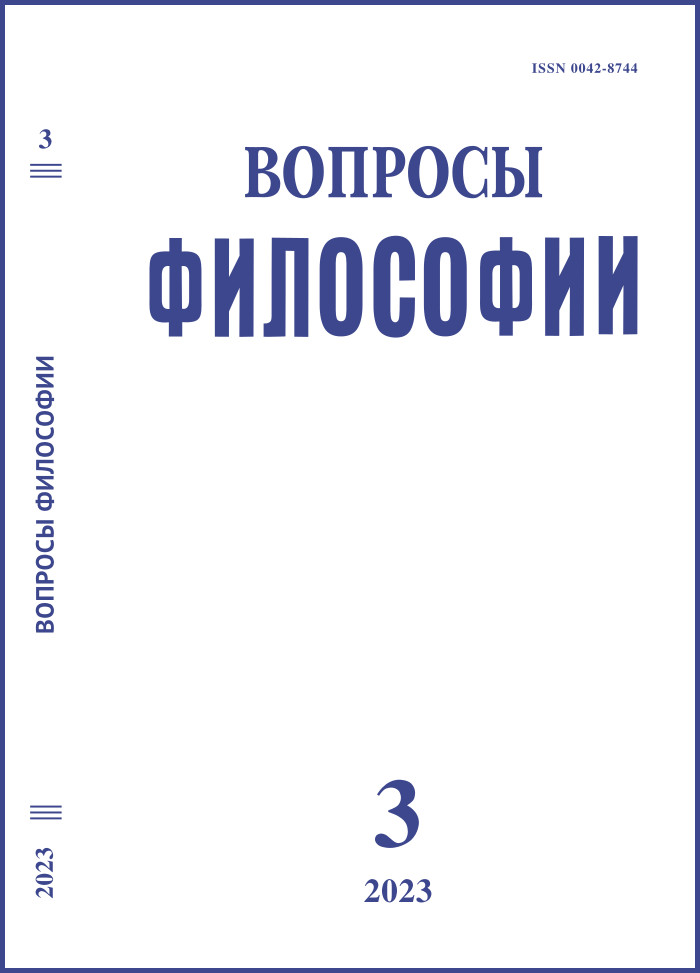In What Sense Can One Speak of National Philosophy?
DOI:
https://doi.org/10.21146/0042-8744-2023-3-81-91Keywords:
national philosophy, philosophical policy, “philosophy” in singular and plural formsAbstract
In recent years, the term “national philosophy” has become very common in scientific circles. One can speak of “national philosophy” in connection with the task of building “sovereignty in the sphere of ideas” in countries that gained independence in the second half of the 20th century and striving to strengthen their national cultural identity, and in countries with a long political history, looking for a way to build a picture of the history of philosophy from the positions of their own country, not only as the history of Western philosophy. The article attempts to clarify in what sense one speaks of national philosophy? For this reason, the paper distinguishes between the concept of national philosophy in the sense of political science and the concept of national philosophy in the sense of anthropology, and also shows the difference between the meanings of the word “philosophy” in the singular and plural forms. It is argued that “national philosophy” is essentially a term of philosophy and politics, and the emphasis is on “nation” rather than “philosophy”. In addition
increased attention paid to the concept of “national philosophy” is the hallmark of the intelligentsia of some countries of “catching up” development. The question “Do we have a philosophy?” cannot be reconstructed from within philosophy itself; “National philosophy” is a concept both necessary and
superfluous

